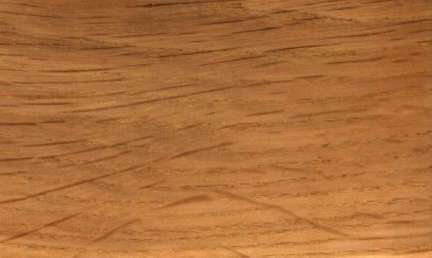
Valley oak (Quercus lobata)
Family: Fagaceae
Common names: California white oak, Valley oak, Valley white oak
Distributed in: United States (North America)
Distribution overview: found in northern and southern California, as well as Santa Cruz and the Santa Catalina islands. It grows at elevations of up to 5000 feet (1524 m). It prefers rich loamy soils in valleys and slopes, and forms groves in foothill woodlands. A relative of Eastern white oak (Q. alba), Valley oak is common through California's interior valleys.
Product sources: Various species in the white oak group are mixed and marketed together. Supplies are abundant, especially in the form of veneers, at moderate prices.
Environment profile: Status has not been officially assessed
Tree size: Tree height is 20-30 m
Colors: the heart isPinkish tinge , Yellowand the sapwoodWhitish to light brown , Width varies .The grain isOpen , the textureMedium to coarse
Natural durability: Heartwood highly resistant to decay , Very durable
Odor: No specific smell or taste
Kiln Schedules: US=Upland T4-C2/T3-C1
Drying Defects: Ring failure, Surface checks
Ease of Drying: Moderately Difficult to Difficult
Comments: White oaks are moderate in bending and crushing strengths, with low stiffness. Their working properties are dictated by the rate of growth of the trees: trees that grow slowly tend to be relatively easier to work with hand and machine tools. Faster grown southern trees are reported to produce wood that is harder than wood from slower growing Appalachian trees. White oak is widely used for vats and casks for holding liquids such as wine and spirits because it is highly impermeable to liquids
Blunting Effect: Moderate dulling effect on cutting edges
Boring: Very good to excellent results
Cutting Resistance: Easy to saw
Cutting resistance is generally medium but is variable. Cross-cutting and narrow-bandsawing are satisfactory
Gluing: Sometimes difficult
Mortising: Very good mortising qualities
Nailing: Pre-boring recommended, Wood is hard
Planing: good
Resistance to Abrasion: Highly resistant to wear
Resistance to Impregnation: Sapwood is moderately resistant
Response to hand tools: Responds Readily
Timber from slow-growth white oak trees are softer and are easier to work with hand tools
Sanding: Very Good to Excellent Results
Steam bending: Very Good to Excellent Results
Screwing: Fairly Easy to Very Easy, Good screwing properties; Turning: Yields clean surfaces
Staining: Fair to Good
Reaction between tannins and liquid from some products, especially those with high water content such as bleach and water-based finishes, may turn the wood green or brown.;
- Numerical data Metric
- Numerical data English
- Strength properties
- References
 |
 |
 |
 |
| Item |
Green |
Dry |
Metric |
| Specific Gravity |
|
|
|
| Density |
|
|
kg/m3 |
| Bending Strength |
|
|
kg/cm2 |
| Crushing Strength |
|
|
kg/cm2 |
| Hardness |
|
|
kg |
| Impact Strength |
|
|
cm |
| Shearing Strength |
|
|
kg/cm2 |
| Stiffness |
|
|
1000 kg/cm2 |
| Tangential Shrinkage |
|
|
% |
| Radial Shrinkage |
|
|
% |
| Weight |
|
|
kg/m3 |
| Maximum Load |
|
|
cm-kg/cm3 |
| Toughness |
|
|
cm-kg |
| Static Bending |
|
|
kg/cm2 |
|
HMSO. 1981. Handbook of Hardwoods, 2nd Edition. Revised by R.H. Farmer. Department of the Environment, Building Research Establishment, Princes Risborough Laboratory, Princes Risborough, Aylesbury, Buckinghamshire.Kaiser, J. 1994. Wood of the Month: Oaks Loom in Designs, Folklore and Symbolisms. Wood and Wood Products, November, 1994. Page 52.Little, E.L.1980.The Audubon Society Field Guide to North American Trees - Western Region.Published by Arthur A. Knopf, New York.Rendle, B.J. Editor. 1969. World Timbers, Volume Two - North & South America (Including Central America and the West Indies). Published by Ernest Benn Limited, Bouverie House, Fleet Street, London.
| 







